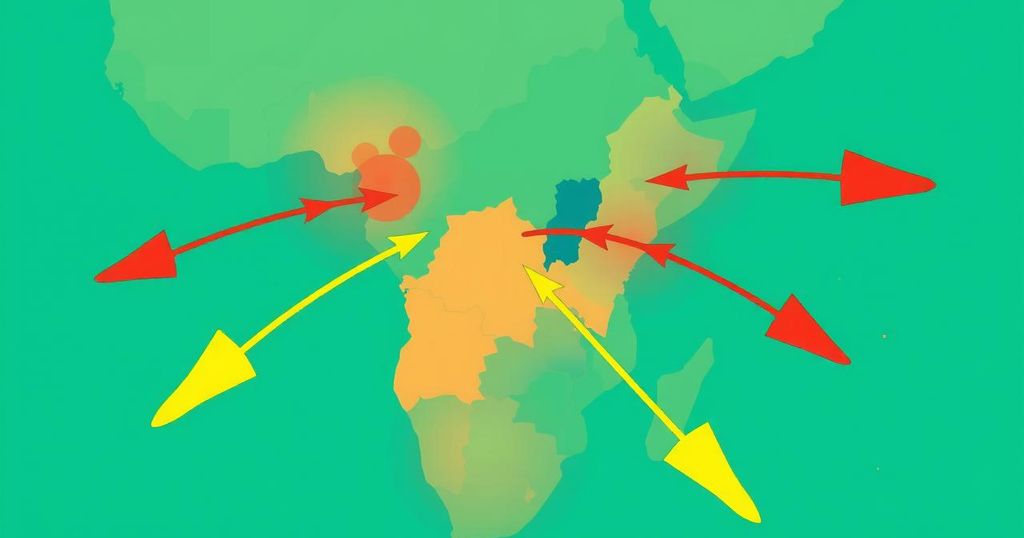The U.S. and Israel’s Controversial Resettlement Proposal for Palestinians in East Africa

The U.S. and Israel are exploring the resettlement of Palestinians from Gaza in East Africa, specifically in Sudan, Somalia, and Somaliland. This plan faces severe opposition from the Palestinians, Arab nations, and numerous rights groups. Initial outreach has yielded rejections, raising doubts about the proposal’s execution and ethical implications.
The United States and Israel have initiated discussions with officials from Sudan, Somalia, and Somaliland regarding the possibility of resettling Palestinians displaced from the Gaza Strip. This approach stems from President Donald Trump’s proposed postwar plan, which has drawn significant criticism and raised ethical concerns. The conditions in the suggested countries, characterized by poverty and violence, cast doubt on the viability of Trump’s assertion that resettlement would occur in an attractive environment.
Sudan has formally rejected the U.S. overtures, while representatives from Somalia and Somaliland stated they were unaware of any discussions concerning resettlement. President Trump’s plan proposes that over two million residents of Gaza would be moved permanently, with the U.S. assuming control of the region for reconstruction and development.
The concept of relocating Palestinians, considered extreme by many, has recently garnered mainstream echoes, notably supported by Israeli Prime Minister Benjamin Netanyahu. In contrast, resident Palestinians vehemently oppose this initiative, doubting claims of voluntary departure. Arab nations have also voiced strong objections and proposed alternative plans to reconstruct Gaza without displacing its people.
Despite widespread dissent, the White House maintains that President Trump is committed to his vision. U.S. and Israeli officials have presented varying incentives to the governments involved, drawing parallels to previous successful diplomatic efforts like the Abraham Accords. Outreach efforts began shortly after the announcement of the Gaza plan at a White House meeting.
Israeli officials are actively working on identifying countries amenable to accepting Palestinians. The response from Sudan indicates a lack of interest, with officials stating that any discussions regarding resettlement were declined. The military-led Sudanese government categorically opposes any plans to transfer Palestinians, emphasizing solidarity with their plight.
Somaliland, while relatively stable compared to Somalia, is not officially recognized as a sovereign state and harbors its own national ambitions. The U.S. engagement with Somaliland focuses on potential diplomatic recognition, which might incentivize the government to consider resettlement options contrary to its support for Palestinian autonomy.
Somalia has consistently championed the Palestinian cause, making it an unlikely candidate for resettling Palestinians. Local officials denied any discussions or contacts regarding resettlement proposals. Observers question the motivations behind these diplomatic efforts, pondering whether there exists an undisclosed agenda involving Somalia.
In summary, the U.S. and Israel’s initiative to resettle Palestinians from Gaza in East Africa is fraught with significant challenges and widespread criticism. Efforts to engage Sudan, Somalia, and Somaliland have primarily met with rejection or denial of discussions, further complicating the feasibility of the proposed resettlement plan. The ethical implications of such a move continue to raise alarm among rights groups, while regional support for Palestinian self-determination remains strong.
Original Source: abcnews.go.com








